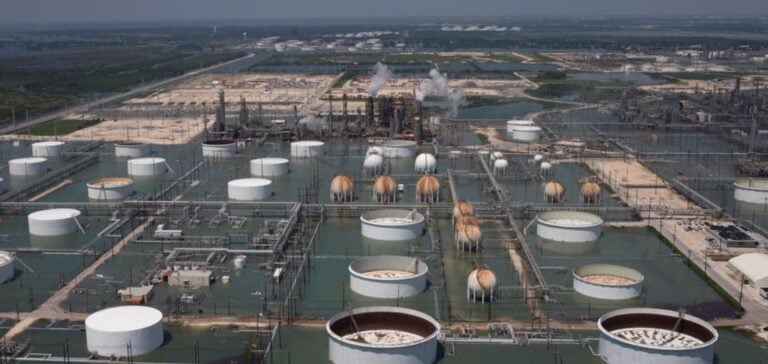U.S. crude oil inventories recorded a significant drop last week, according to the latest data published by the Energy Information Administration (EIA). In fact, commercial crude reserves fell by 4.1 million barrels for the week ending May 24, well above the 1.15 million barrel drop anticipated by Bloomberg analysts. This substantial reduction is mainly attributed to increased activity at US refineries, which utilized 94.3% of their capacity, compared with 91.7% the previous week. This is the highest utilization rate recorded for more than nine months, illustrating a significant ramp-up in refining operations.
Increase in refinery production
Increased refinery activity contrasts with the two-million-barrel rise in gasoline inventories over the same period, whereas analysts had forecast a reduction of 1.5 million barrels. This acceleration in production comes despite a 3% drop in total refined products put into circulation compared with the previous week, with a 1.8% drop in gasoline deliveries. Memorial Day weekend, falling this year on May 25, 26 and 27, traditionally marks the start of the road and air travel season in the United States. Several leading indicators had pointed to sustained demand for gasoline in the run-up to the weekend, making the rise in gasoline inventories even more surprising.
Impact on the oil market
This publication had an impact on oil prices, enabling a barrel of West Texas Intermediate (WTI) to limit its losses. At 15:30 GMT, a barrel of WTI for July delivery was trading at $78.86, down slightly by 0.46%.
Another factor influencing crude oil inventories was the decline in US exports, which fell by almost 11% during the period analyzed. Despite this reduction in exports, the decrease in inventories remains remarkable. The current situation highlights the complexity of demand and supply dynamics in the US oil market, particularly at a time when refineries are ramping up production while apparent demand for refined products is falling.
This significant drop in US crude oil inventories underlines the impact of increased refinery output on the oil market. While this may offer some support to oil prices, uncertainties over demand and exports continue to weigh on the short-term outlook. Market players will be keeping a close eye on future data to assess the evolution of this complex dynamic.






















